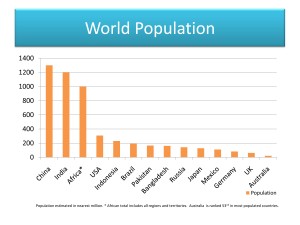 Most of our kids harbor a burning desire to be number one at something. They can easily conjure an image of themselves scoring the winning goal, coming first in a race, hitting the winning shot….but how many of them at first call on an image of the invention they are going to create that could change the world? Or a design of a building that breaks all previous thoughts or examples of possibilities? How confident beyond the age of two or three (when they really do believe they are a superhero), do they think they have a chance to be society’s hero? And if you asked them if they wanted to, would they think it is possible for them to be able to do so?
Most of our kids harbor a burning desire to be number one at something. They can easily conjure an image of themselves scoring the winning goal, coming first in a race, hitting the winning shot….but how many of them at first call on an image of the invention they are going to create that could change the world? Or a design of a building that breaks all previous thoughts or examples of possibilities? How confident beyond the age of two or three (when they really do believe they are a superhero), do they think they have a chance to be society’s hero? And if you asked them if they wanted to, would they think it is possible for them to be able to do so?
With three children of my own, and with experience of schooling across 3 stages (preschool, primary school, high school) and across four schools and three schooling types (State, Catholic and Private), I have discovered a distinct gap in our education system in helping nurture and inspire our children to become the inventors, entrepreneurs, and creators of tomorrow. As many of us know with our children, the connection between what they are learning today in school and how it helps them in their future is rarely understood by them. And to be honest, unless you raise the level of abstraction in how the skills they are really learning can be applied in life – it is difficult for us to provide an answer to that connection in a way that will satisfy them. More than that, it seems that whilst our children might get lucky with an inspirational teacher, the exploration of engineering something new, the time given to create and celebrate a new invention, learning how previous inventions have changed our lives and the extraordinary achievement it represented in its time, does seem to be lacking, particularly in the early years of schooling.
By the time our children hit high school, unless they have a particular self-interest, most do not relate their natural strengths or interest in Mathematics, English, or Art to the possibilities within engineering and invention. We begin to prescribe requirements for university entry scores in relation to possibilities for pre-defined career paths, but are we really engaging our future minds on the problems, opportunities and possibilities that present every day for them to be inspired to solve and the path to get there?
Thomas Edison claimed that Genius was 1% inspiration and 99% perspiration. It seems to me that our education system is putting too much emphasis on, and we are providing too much by way of our own example, of the perspiration element. We seem to be ignoring the importance and are not providing enough emphasis and example-setting on the inspiration aspect. By emphasis I am talking within the design of our education system and in the time and responsibility we have as parents in encouraging, nurturing, and inspiring our children’s creativity and exploration of the “what if you could…” scenarios.
As we have increased our protective care, prescribing the after-school activities in a way that gives our children the best possible opportunities (or so we rationalize), is it possible that we may have not correctly weighed up the cost of preventing or constraining the ability for our children to run free and learn through natural exploration and invention? As we look to ensure enrichment, gifted and learning, and assisted programs to be supported at schools, have we put the same energy into seeing how creativity and invention is being supported and celebrated at school?
 If we think about the future for our children, where do they sit within the world’s estimated population?
If we think about the future for our children, where do they sit within the world’s estimated population?
We know IQ is distributed evenly through the population. So how do we help our children make a positive footprint on the world, both for their generation and for their children’s generation?
Australia has an estimated population of 21million, an approximate 0.3% of the total world’s population. Rather than accepting it is OK to plod along, and accept what is, we have a responsibility and requirement to create a country of global visionaries. Those who see their playground as bigger than the constraints of our shorelines and the comfort we feel in our history of enjoying “the lucky country” and the “she’ll be right” philosophy.
It is absolutely critical that we teach our children now the importance and relevance of their uniqueness. Their unique mix of talent, skills, smarts and experiences. Of the same opportunity that they have as an individual to anyone, anywhere else in the world. They have an equal chance to make a difference; and that difference can come from their own creativity and invention. The problems they can be thinking about to solve may not just be the ones that they face, but rather the problems that we as a global nation of people face. Or may be something that can be enjoyed by others, enhancing and improving many lives, not just their own.
As a country, as business people, as parents – we have a responsibility to nurture and inspire our children to become tomorrow’s heroes.
I know I don’t have all the answers but I do want to keep asking the right questions. And help my children to keep pushing and exploring what could be. I would like for us all to find a way to break inertia, break stereotypical types, break the habits that too much “dead use of technology” like television and electronic games etc provide, and muster the energy to encourage our education system and society in general to promote and support invention and creativity in our children. For us to celebrate our inventors, engineers and entrepreneurs so they become the leading examples in our society.
Here are my thoughts of what we can do to nurture and inspire tomorrow’s heroes:
We must accept our responsibility to inspire and nurture our own children. We must help our children explore what could be and not allow them (or us) to get bogged down on the “how to get there”. We must make the process of exploration and creativity positive; we must invite it, suspend judgment, and allow for self evaluation. We must help our children see the beauty and the impact that inventions have bought us – everything from the printing press, microscope, bike, paperclip, microchip, spaceship all the way to the iphone and everything in-between! They are just a few examples – I am sure you can think of many more exciting examples to inspire others.
And it may be that with this focus, our children will dream bigger dreams, will be given the confidence to explore what could be and take will become tomorrow’s hero.
